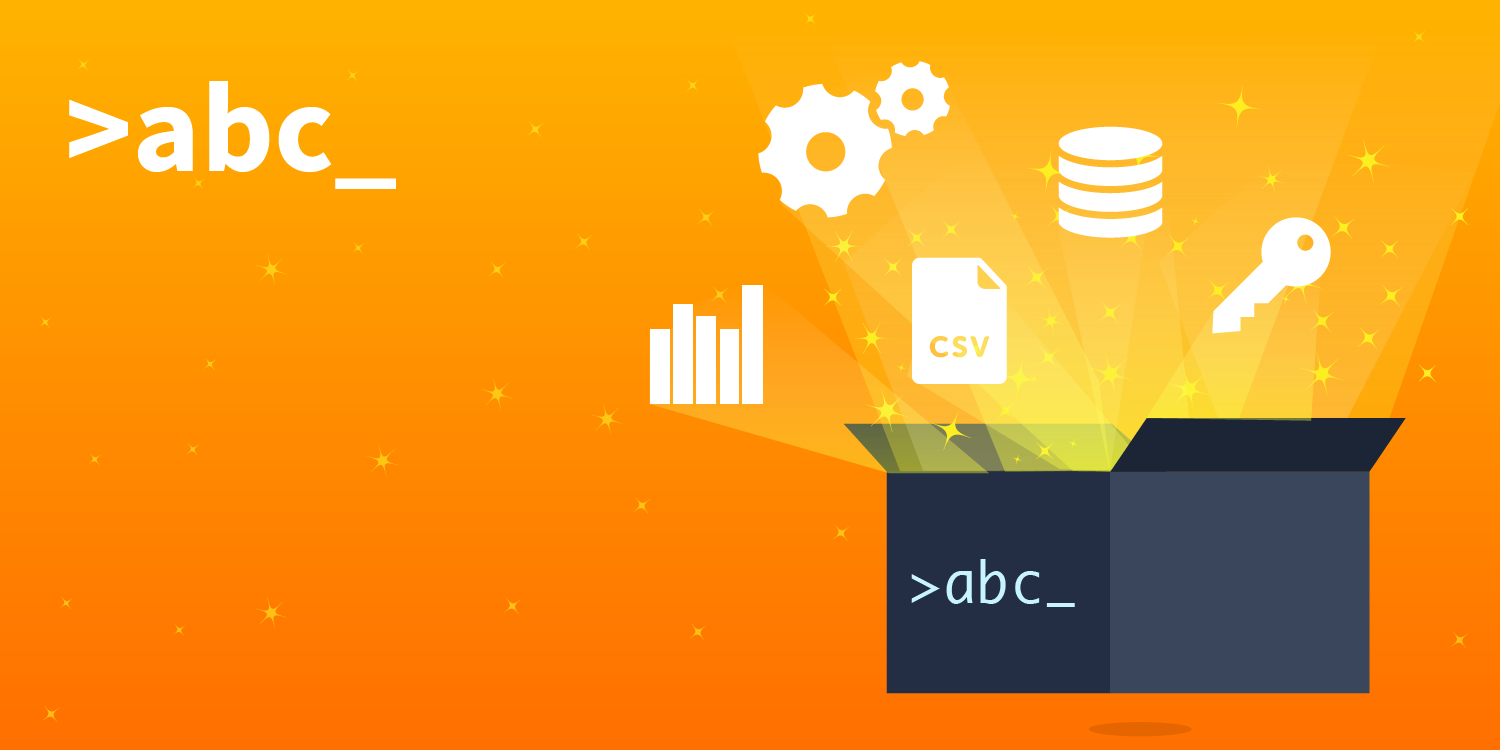ABC is a command-line tool to interact with appbase.io. It can also serve as a swiss army knife to import data from any popular data source (Postgres, SQL, Mongo) to ElasticSearch. This feature works with minimum configuration and is totally automatic. In certain sources like Postgres and Mongo, you can even keep the database and ElasticSearch cluster in sync such that any change from source gets added in destination as well.
ABC consists of two parts.
- Appbase module
- Import module (closed source)
To get the list of all commands supported by ABC, use -
abc --helpABC comes with a lots of benefits over any other traditional solution to the same problem. Some of the key points are as follows -
- Whether your data resides in Postgres or a JSON file or MongoDB or in all three places, abc can index the data into Elasticsearch. Besides these, it also supports CSV, MySQL, SQLServer, Kafka and Elasticsearch itself to an Elasticsearch index.
- It can keep the Elasticsearch index synced in realtime with the data source. (Note: Currently only supported for MongoDB and Postgres)
abc importis a single line CLI command that allows doing all of the above. It doesn’t require any external dependencies, takes zero lines of code configuration, and runs as an isolated process with a minimal resource footprint.- abc also supports configurable user defined transformations for advanced uses to map data types, columns or transform the data itself before it gets indexed into Elasticsearch.
ABC can be downloaded as an executable as well as through a Docker image.
Download abc's executable from releases for your platform and preferrably put it in a PATH directory.
The access it as -
> abcYou should see a list of commands that abc supports.
Try logging in for example.
To use the Docker image, pull it as
docker pull appbaseio/abcThen create the volume to store config files across containers.
docker volume create --name abcFinally you should be able to use abc
docker run -i --rm -v abc:/root appbaseio/abcThis command may look too long to you. We can create an alias to make things better.
# create alias
alias abc='docker run -i --rm -v abc:/root appbaseio/abc'
# run a command
abc login googleABC's features can be broadly categorized into 2 components.
- Appbase features
- Importer features
Appbase features allows you to control your appbase.io account using ABC. You can see them under the Appbase heading in the list of commands.
COMMANDS
login login into appbase.io
user get user details
apps display user apps
app display app details
create create app
delete delete app
logout logout session
import import data from various sources into appbase appYou can look over help for each of these commands using the --help switch.
Alternatively we have detailed docs for them at docs/appbase folder.
abc login --help# display all commands
abc
# login into system
abc login google
# get user details
abc user
# get list of apps
abc apps
# get details of an app
abc app MyAppName
# delete that app
abc delete MyAppName
# create it again
abc create MyAppName
# view its metrics. It will be 0 as it is a new app
# here we are using AppID. We can use AppName too.
abc app -m 2489ABC allows the user to configure a number of data adaptors as sources or sinks. These can be databases, files or other resources. Data is read from the sources, converted into a message format, and then send down to the sink where the message is converted into a writable format for its destination. The user can also create data transformations in JavaScript which can sit between the source and sink and manipulate or filter the message flow.
Adaptors may be able to track changes as they happen in source data. This "tail" capability allows a ABC to stay running and keep the sinks in sync. For more details on adaptors, see Import docs.
ABC can be built locally via the traditional go build or by building a Docker image.
You can install ABC by building it locally and then moving the executable to anywhere you like.
To build it, you will require Go 1.12 or above installed on your system.
go build ./cmd/abc/...
./abc --help # voila, you just built abc from source!git clone https://github.com/appbaseio/abc
cd abc
docker build -t abc .
docker volume create --name abcVolume is used to store abc config files across containers.
Now abc can be ran through Docker like in the following example which starts google login.
docker run -i --rm -v abc:/root abc login googleSome more examples
# setting alias for easy usage
alias abc='docker run -i --rm -v abc:/root abc'
# using alias now :)
abc user
abc appsThe ABC project you see in this repository is not the complete project. Appbase.io works on a proprietary version of ABC using this project as the base.
Checkout the docs folder for details on some ABC commands and topics.
Want to help out with ABC? Great! There are instructions to get you started here.
ABC is licensed under the Apache 2.0 License. See LICENSE for full license text.


